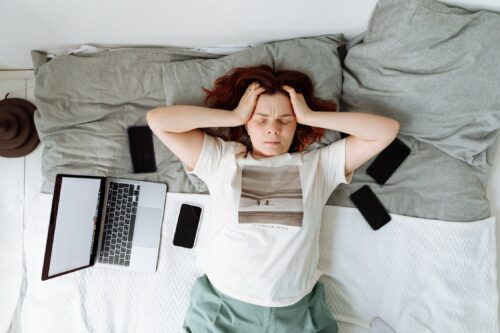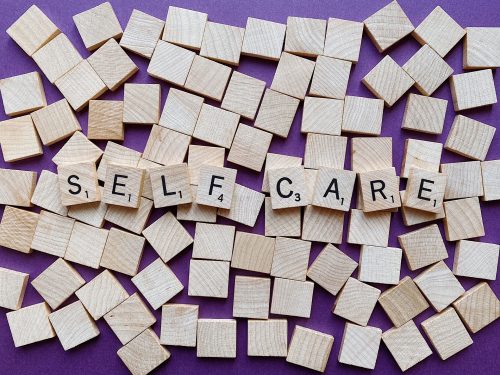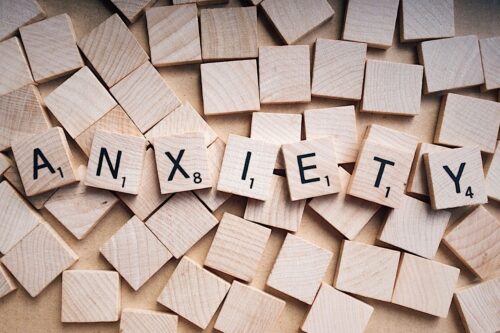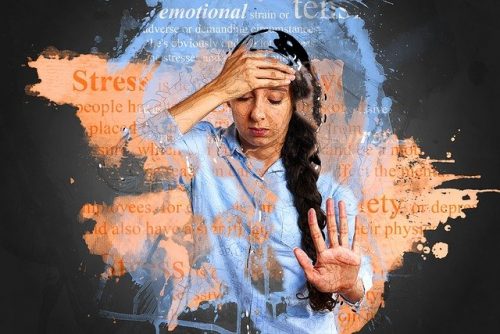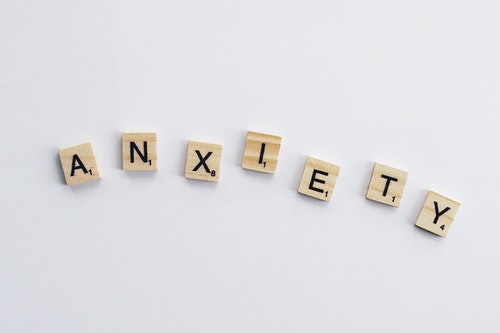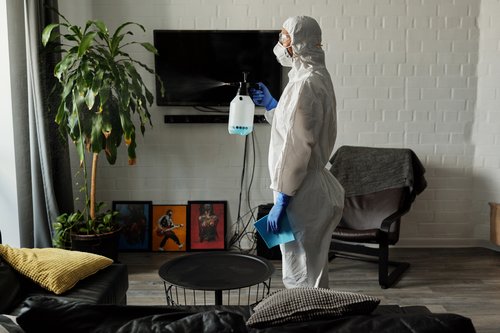Human health isn’t just the physical body anymore — it has physical, mental, and emotional aspects. However, mental health is still relatively new to most people compared to the general knowledge of physical health.
There’s a gap in general knowledge when it comes to mental health. Many people might be able to study and qualify for performing some medical tasks like basic first aid and CPR. However, few people know what to do when it comes to mental health issues — and most people probably won’t recognize a mental illness when they see one.
Recognizing Mental Health Issues
It can be very difficult to recognize if someone has a mental health issue or not — are they just a grumpy person, or is it a sign of something more significant and harmful to them. We might think, “That’s just the way they are!” but in truth, some things that we might think are just personality traits might indicate a severe mental health issue. The person themselves might not be aware of it.
Symptoms and Signs
Some things to watch out for in your friends and loved ones might include:
- Feeling sad or irritable for a long time
- Being continually afraid or worried
- Swinging between two mood extremes, such as extreme happiness or depression
- Withdrawing from social events or friends and family
- Being constantly tired or fatigued
- Feeling paranoid, or talks about things that don’t exist
- Being unable to overcome everyday problems or stress
- Difficulty understanding other people
- Substance abuse
- Unhealthy eating habits
However, it’s crucial to understand that these symptoms can manifest differently in each individual. Few people will have all these symptoms at once. Most people will only have some of them, or have symptoms that aren’t on this list.

Mental Health Stigma
It can be difficult to help someone get mental health treatment due to the stigma surrounding mental health — it’s difficult to admit that you have a problem with your brain or emotions. It’s also not unusual for some people to deride having a mental health problem as “going crazy.”
However, it’s anything but — people with mental health problems aren’t crazy. They have a medical concern that needs addressing. Furthermore, mental health illnesses are more common than most people think: the US Health Department estimates that half of United States citizens have some form of mental illness.
Seeking Professional Help
The stigma around mental health makes it extremely difficult for people with mental illnesses to get the healthcare they need. This stigma is also varied, making it difficult to overcome. The obstacles people face can be anything from social stigma to not knowing what kind of doctor they need.
Pop psychology makes this even more difficult — according to mental health services like BetterHelp, pop psychology can actually perpetuate myths and misconceptions about mental health, making it even more difficult to address.
However, remember that your brain is just as much an organ as the rest of your body. Having a problem with your liver or kidneys would cause you to go to the hospital — and your brain is an even more critical organ.
Finding The Right Doctor
Not all mental health professionals are the same. Just like how there are doctors for different bodily functions — orthopedic for your musculoskeletal system, for example — mental health professionals have specializations as well.
- Psychologists specialize in communicating with their patients and focus on assisting them using therapy. They might assist someone by employing CBT or other behavioral interventions.
- Psychiatrists can also help people with mental health illnesses, but their approach often involves medication. They typically handle more complex cases that need medical treatment.
- Counselors and therapists are often the starting point for someone’s mental health journey. They’re often the first point of contact, but can also provide support for a broad range of mental health issues.
Choosing a mental health professional will depend on what you need, and not everyone responds the same way to treatment. Some people benefit significantly from CBT, for example, but it might have no effect on another person.

Understanding Treatment Options
Treatment for mental health issues is not one-size-fits-all. It’s a personalized journey, often involving a combination of different methods. It’s best ask mental health professionals questions about what you need and the types of mental health treatment approaches there are. Everyone’s problems are different. Some might do with mental health medications, but other treatments might be needed.
Psychotherapy
One of the primary forms of treatment for a mental disorder is psychotherapy, also called talk therapy. This type of therapy is what’s most well-known in the public eye — it involves talking to health care providers and a mental health professional about your problems, thoughts, and feelings.
Behavioral Therapy
Behavioral therapy for mental disorders works by helping a person understand why they behave a specific way, then taking actions to retrain themselves or manage their mental health problem.
- Cognitive Behavioral Therapy (CBT) is a therapeutic approach that helps a patient change negative thought patterns, with high rates of success for anxiety disorders and depression. However, CBT is effective for many different mental illnesses.
- Dialectical Behavior Therapy (DBT) helps patients develop coping and mental health management skills.
- Psychoanalysis looks into a patient’s past to try to discover the reasoning behind why they act or feel a specific way.
Medication
Your physical body also affects how you feel and think, making medicating an effective way to handle some mental health illnesses — for instance, anti anxiety medications are effective, as are antipsychotic medications for psychotic disorders. It’s typically used in conjunction with psychotherapy or another therapeutic approach to maximize the effectiveness of both treatments.
Some mental health issues are the result of imbalances in brain chemistry or an excess of one or another hormone. Medications for mental health help balance these chemicals to alleviate the symptoms of a mental illness. Brain stimulation therapies are also effective.
However, people with mental health illnesses should ensure that they’re aware of any possible side effects of medication, and communicate with their doctors about any potential risks.
Alternative Treatment Methods
There are several other methods to manage the symptoms of mental health issues, such as mindfulness, meditation, and art therapy. They’re all effective for managing stress, anxiety, eating disorders, and a host of other problems. They can also enhance the effects of medical and therapeutic approaches, and vice versa.
Lifestyle Effects On Mental Health
Remember, your physical body has an effect on your brain, and therefore, your mental health too. Obsessive compulsive disorder can significantly hinder your daily living, as can post traumatic stress disorder. The unhealthy effects of these disorders can create a downward spiral in your lifestyle, so it’s important to address both the disease and its effects.
Living a healthier lifestyle can have significant benefits when it comes to your mental health, so a holistic approach will help address your mental illnesses.
- Nutrition: Diet and nutrition, for example, have a significant impact on mental health. Foods rich in omega-3 fatty acids, like salmon and flaxseeds, can enhance brain function and mood. Similarly, a diet high in fruits, vegetables, and whole grains provides essential nutrients that can help regulate mood.
- Exercise: Regular physical activity releases endorphins, often known as ‘feel-good’ hormones, which can improve mood and reduce symptoms of mental health disorders like depression and anxiety. Even a daily walk or a short yoga session can make a significant difference.
- Good Sleep: Sleep, often underrated, is vital for mental health. Poor sleep can exacerbate mental health issues, while a good night’s sleep can improve mood and cognitive function. Establishing a regular sleep routine and creating a calming bedtime environment can be beneficial.
- Stress Management: Managing stress is equally important. Techniques like mindfulness, deep breathing, and meditation can help reduce stress and improve mental well-being. These practices encourage a state of calm and present-moment awareness, which can be incredibly therapeutic.

Support Systems
No one should navigate the journey of mental health alone. Support from family members and friends is invaluable for a person to treat depression and other types of mental health conditions. They can provide a listening ear, a comforting presence, or practical help. Encourage open communication with loved ones and let them know how they can support you.
Community Resources
Community resources also play a significant role. Support groups, either in-person or online, can provide a sense of belonging and understanding from people who are going through similar experiences. Mental health helplines offer immediate assistance and guidance.
In today’s digital age, online resources and teletherapy have become increasingly accessible. Mental health services administration can occur online, not just in person. These platforms provide therapy and support from the comfort of your home, making mental health care more accessible for those with mobility issues, time constraints, or living in remote areas.
Long-Term Mental Health Management
Managing mental health is an ongoing process. It’s about building resilience and developing coping strategies for the ups and downs of life. Regular check-ins with mental health professionals can help monitor progress and make adjustments to treatment plans as needed.
Coping skills and strategies vary from person to person. For some, journaling helps in processing emotions, while others may find solace in creative pursuits like painting or writing. The key is to find activities that bring joy and provide a constructive outlet for managing emotions.
Treating Mental Health Issues
Managing and treating mental health issues isn’t a one-time thing — nor is it like typical illnesses where you can recover after a few days or weeks of treatment. Treating mental health issues will usually take several months or years, and new concerns may arise from the effects of technology on mental health. Some people may have to manage their mental illnesses for their entire lives. Still, that doesn’t stop people from living happy and fulfilling lives, so long as they’re able to utilize effective treatment and management methods that work best for them.
Remember: your body isn’t just your physical, emotional, or mental aspects. It’s all of them, meaning that caring for one aspect will have benefits for the others. Similarly, neglecting or harming one aspect will damage the other aspects too.

